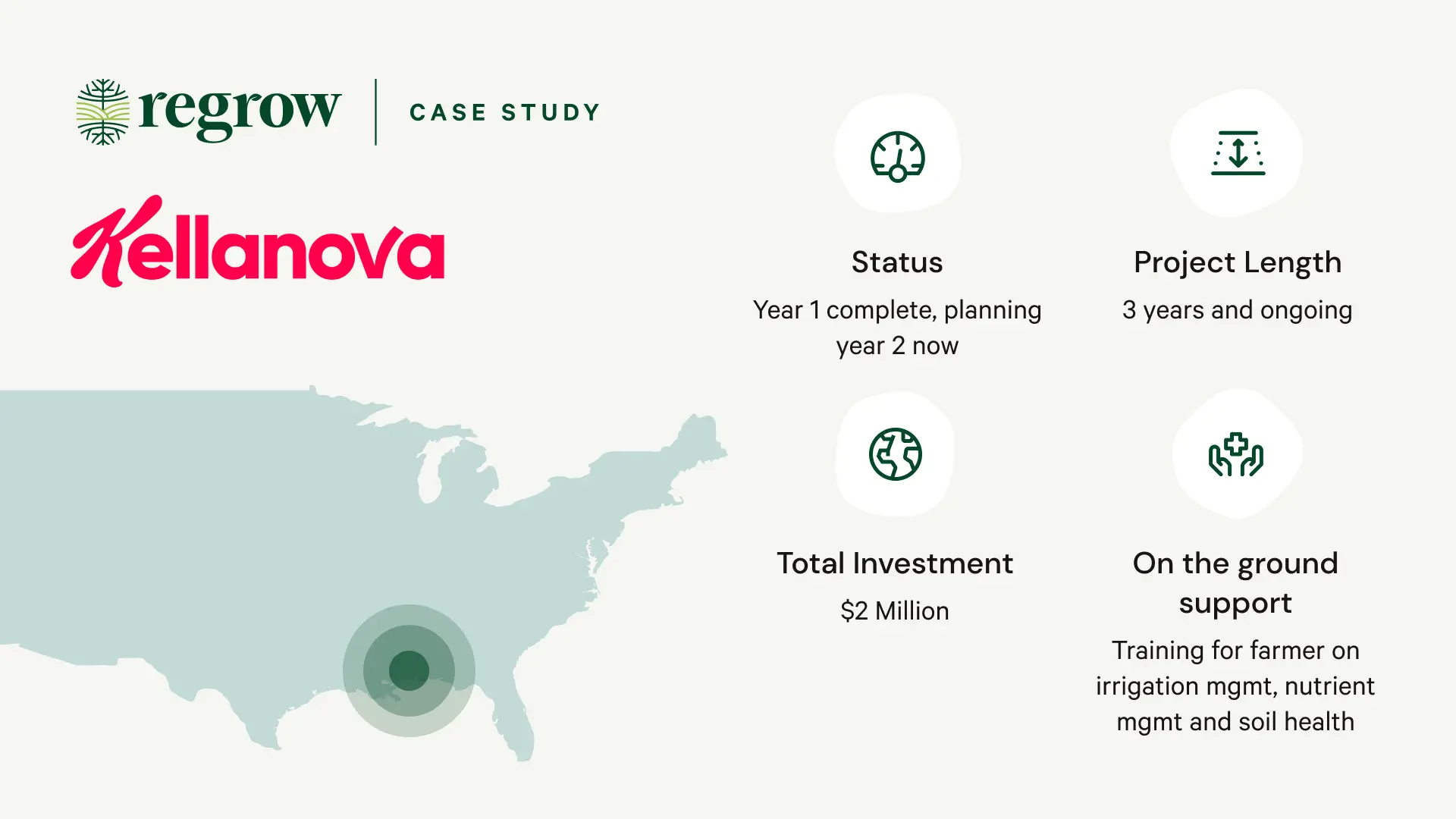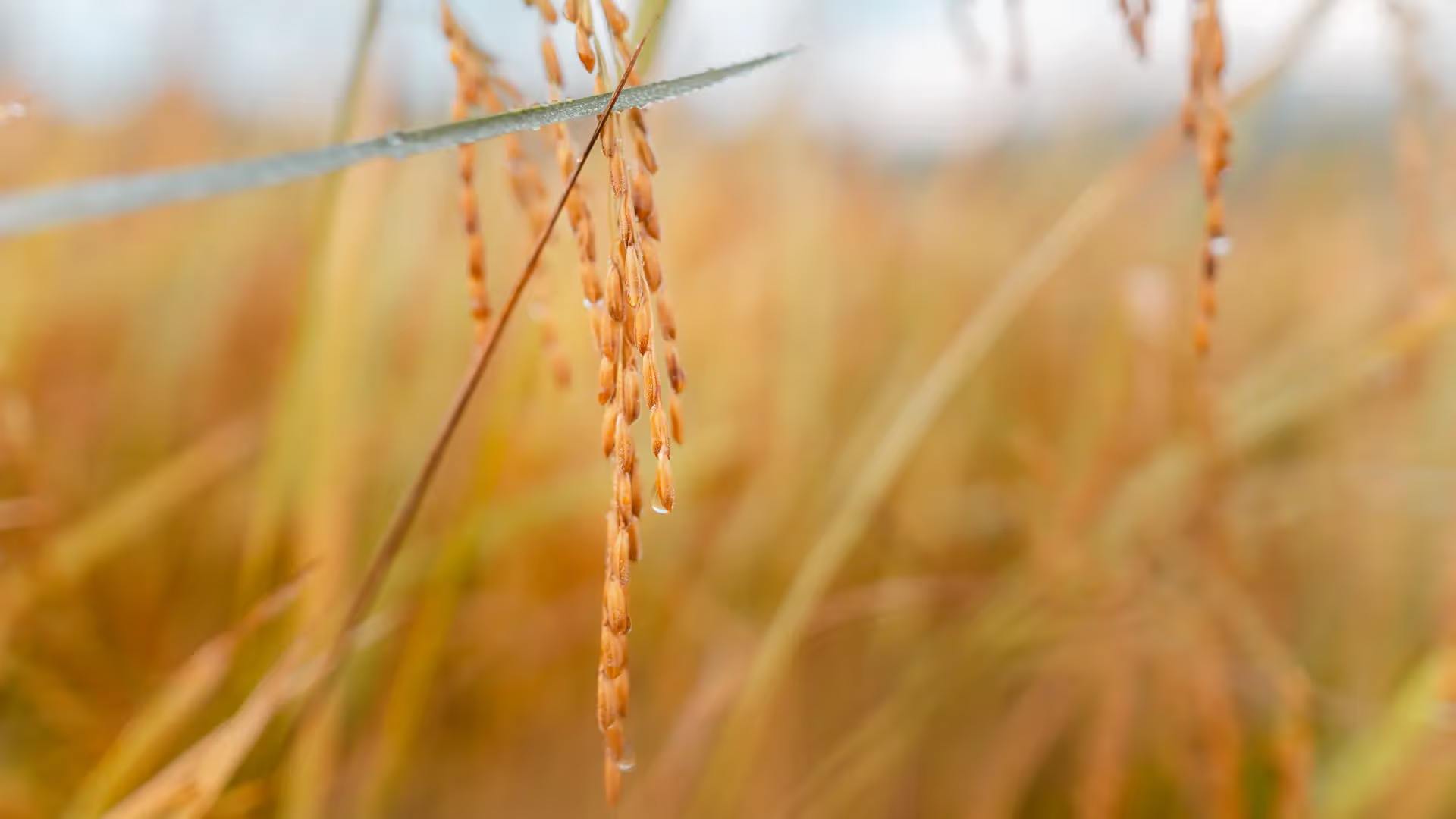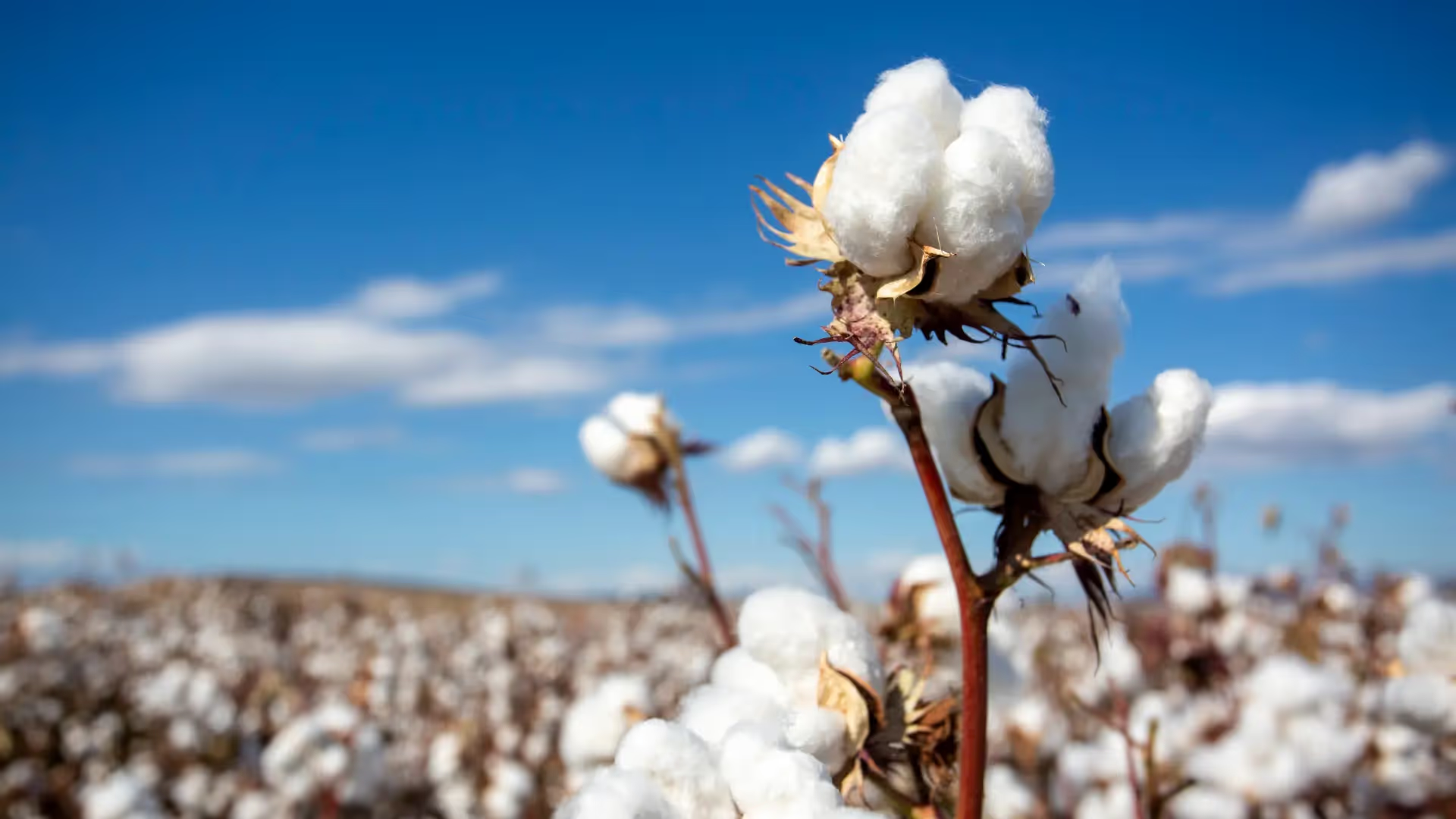Kellanova's InGrained promotes climate-smart rice production while building resilience for the company’s supply chain
The article has been amended to incorporate the brand transition from Kellogg's to Kellanova, which occurred in October 2023.
Kellanova, a food company famed for its Rice Krispies® brand cereal, has committed to reducing scope 3 greenhouse gas emissions across its value chain by 15% by the end of 2030. In order to achieve this goal, the company will need to work with stakeholders across its supply chain, identifying the most efficient areas for emissions reduction and adjusting processes and practices to optimize emissions reduction.
This is no easy task. However, there’s one crop that can make a significant impact in achieving this goal: rice.
Rice is the fourth largest crop grown across the world. Farmers in the United States alone contribute 20 billion pounds of rice to our global food supply and U.S. rice production is valued at more than $2.4 billion.* By reducing the emissions associated with rice production, we can reduce the environmental impact of food production and set an operational standard for other countries, companies and producers to do the same.
Challenge
In 2021, Kellanova (then Kellogg's) set aside $2M to develop a 5-year program that:
- Empowered rice farmers to engage in climate-smart farming practices
- Reduced methane emissions in the company’s supply chain
- Allowed the company to track practice adoption and estimate emissions reductions from climate-smart practices
This program needed to be simple for growers to use and backed by trusted science and technology. The program also needed to align with the company's Better Days® Promise: a commitment to advancing sustainable and equitable access to food for 3 billion people by the end of 2030.
Partnership
Together, Kellanova and Regrow developed a platform that allowed growers to plan and implement climate-smart rice farming practices and provided the tools necessary for the company to track adoption and estimate the environmental outcomes of those practices.
The platform was developed using Regrow’s measurement, reporting and verification (MRV) software, underpinned by industry-leading remote sensing technology (OpTIS) and environmental modeling (DNDC).
Within the platform, Regrow would model the emissions outcomes of specific farm management practices, such as irrigation and nutrient management. Regrow makes these assessments using data specific to each farmer’s location, soil type, crop variety, weather data and other factors. This hyper-specific data allows farmers to choose the soil health practice(s) that will best serve their operations, both environmentally and financially. Then, Regrow would quantified the impact of those changes on methane emissions.
This platform served as the foundation for a sustainable rice farming program in which growers could adjust the specific practices that build soil health and establish a resilient crop (such as irrigation practice), and see the estimated methane emissions associated with those practices in real time. After the growing season, Kellanova could confirm emissions reduction estimates, compensate farmers for their efforts, and track progress toward its overall Better Days® commitment within its key supply shed: the lower Mississippi river basin.

Solution
The company launched its climate-smart rice program, [Kellogg’s] InGrained™, in 2022. In the first year of the program, Kellanova and its growers achieved a reduction of more than 1,600 metric tons of greenhouse gasses — the equivalent of taking more than 345 gasoline-powered cars off the road for one year.
In addition to reducing emissions, the InGrained™ program ensures that enrolled farmers have the resources they need to transition to climate-smart practices while improving financial stability for their operations.
The program is expected to grow over the course of its 5-year lifespan, with more enrolled farmers, more acres of climate-smart rice and a higher volume of emissions reduction. Together, Kellogg’s and Regrow plan to expand the InGrained™ program to include more regions, soil types and weather patterns.
Scaling Agriculture Resilience
The InGrained™ program is a revolutionary program for climate-smart rice production. The program gives growers a trusted opportunity to monetize sustainable production, establishes a methodology and platform standard for reduced-methane rice and helps build resilience for stakeholders across the supply chain.
As one of the most consumed crops in the world, establishing a better way to grow rice can help us significantly reduce the emissions associated with our food systems, while allowing us to stay connected to a crop that has fed our growing population and supported culture for generations.
*Tribe, Bright. “U.S. Rice Fact Sheet.” The U.S. Sustainability Alliance, 26 Aug. 2021, https://thesustainabilityalliance.us/u-s-rice-fact-sheet/.






